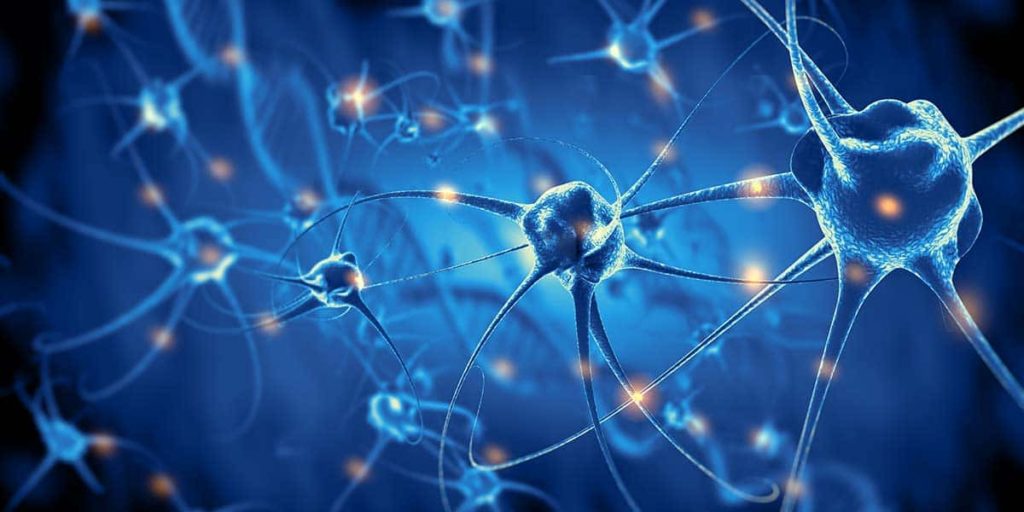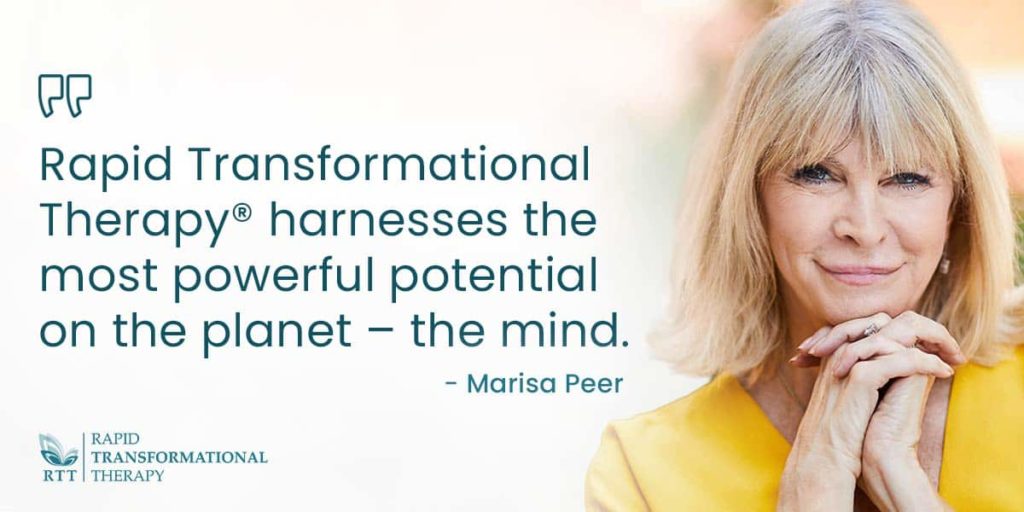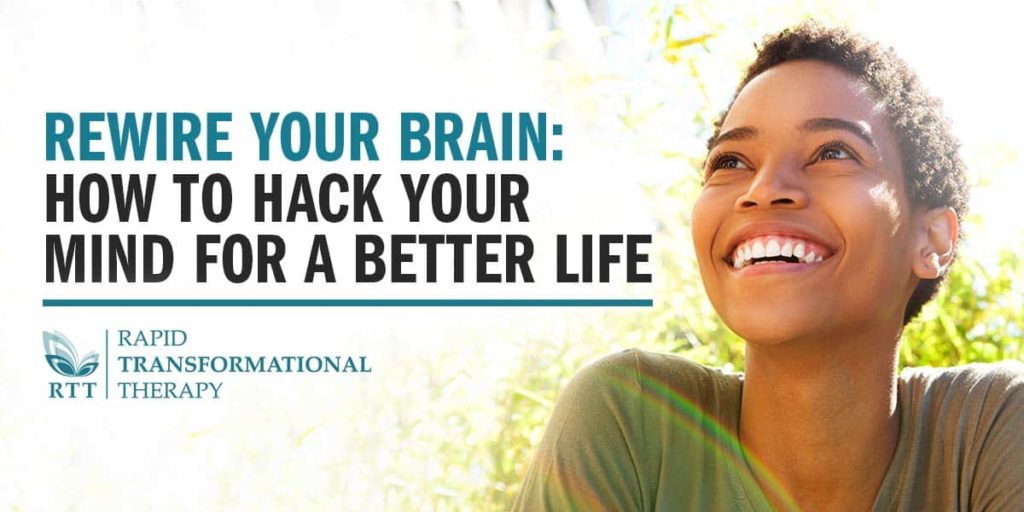If you’ve ever wondered whether it was possible to rewire your brain and reprogram your mind, the good news is that yes, it’s possible.
For decades, experts have studied the human brain. What they discovered is that the brain is agile and capable of changing throughout its life—a trait known as ‘neuroplasticity.’
So if you want to rewire your brain to develop healthy habits, improve yourself, and make lasting changes in your life, you’ve come to the right place.
In this article, you’ll learn how to change your brain’s internal wiring to develop positive thought patterns and behaviors.
Read on to discover:
- What Neuroplasticity is
- How you can rewire your brain
- How long it takes to rewire your brain
- The secret to accelerating the process of change
What is Neuroplasticity?

In reality, your brain has actually been wiring and rewiring itself your whole life. This ability of the brain to change its inner wiring is what experts call ‘neuroplasticity.’ It is how you grow and develop new skills.
In simple terms, neuroplasticity is the ability of your brain to alter itself in response to new information or stimuli. Whenever you experience or learn something new, your brain forms new neural connections to adapt to these new stimuli.
This process has been ongoing ever since you were born. During your childhood, your brain was rapidly developing, sprouting connections between nerve cells. These connections are called ‘synapses.’
Synapses are the junctions between one neuron cell and another. They act as a “bridge” carrying electrochemical information between neurons. These “bridges” connect neurons together and allow your brain to learn new things and develop new skills.
Over time, some of your synapses strengthen, while others weaken. Synapses that you don’t use are eliminated completely (a process known as synaptic pruning). Synapses that are used regularly get reinforced and become stronger.
An example of this would be if you were to attend a dance class for the first time; on your first day, you wouldn’t know the moves or be able to dance to the rhythm. Your body has to move in new and unfamiliar ways, and your brain has to make new synapses to be able to execute these dance moves.
With practice, however, these groups of synapses begin to strengthen; after a while, you won’t even need to put conscious effort into remembering specific moves, they happen automatically. With even more practice, you can even time these moves to a specific beat.
At a certain level, your synapses would have been reinforced to a point that allows you to get into a “flow” state—a point where you no longer need a conscious effort to dance. At this stage, you’re able to simply focus on the music and express yourself on the dance floor.
As you grow older, neuroplasticity declines, but never completely stops. That’s why regardless of your age, it’s always possible to rewire your brain and transform negative thought patterns and behaviors into positive ones.
The key is to strengthen synapses that are responsible for positive thoughts and behaviors, (things like gratitude and self-discipline) while pruning synapses that encourage negative ones (such as anxiety and destructive habits).
Your brain is being rewired every time you are practicing a particular thought or behavior.
Typically, you would rewire your brain by practicing habits that promote the growth and strength of new, desired synapses. This requires conscious effort and discipline and may take some time before you see results.
However, you could also make instant changes in behavior and thought patterns by working directly with your subconscious mind. In fact, professional therapists have been using this method to cultivate desired results in their clients almost overnight.
If you’d like to see instant changes in your thought patterns and behavior, you can jump directly to learn more about Rapid Transformational Therapy® (RTT®).
Otherwise, let’s explore what you can personally do to rewire your brain to cultivate healthier habits and thought patterns. Each of these exercises can help you improve cognitive functions and develop better focus, memory, and even enhance your intellect and creativity.
How to Rewire Your Brain

Rewiring your brain isn’t difficult, however, you do need to make a conscious effort to continuously learn and experience something new. Both of these are keys to triggering neuroplasticity.
Here are a few proven ways you can redo your brain’s internal wiring:
1. Learning a new language (improves memory, increases brain matter)
Learning a new language is one of the best ways to improve cognitive function and neuroplasticity.
In a 2012 study, researchers examined 10 exchange students—native English speakers that had gone to Switzerland to study German. After five months, scientists discovered that the density of grey matter in the students’ brains had increased.
Grey matter is the part of your brain associated with language, attention, memory, motor skills, and emotions. Experts believe that increased grey matter can improve your functions in these areas, especially as you age.
Additionally, learning a second language doesn’t just improve your grey matter alone. A 2017 study showed that learning a new language also increases white matter density. It also increases the size of your hippocampus, the part of your brain responsible for long-term memory.
Scientists theorize that learning a new language forces the brain to form new synapses and increase in size. This helps with improving overall cognitive function. This also delays the onset of cognitive diseases such as dementia and Alzheimers.
2. Meditation (regulates emotions, reduces stress)

Most of us are aware of the numerous health benefits of meditation. However, did you know that it’s also a great way to positively rewire your brain?
A group of neuroscientists from the University of Wisconsin-Madison were curious about the effects of meditation on the brain. To that end, they decided to study the brain of Matthieu Ricard, a Tibetan monk who had spent decades meditating in the Himalayas.
What they discovered was that Ricard had much higher activity in his left prefrontal cortex—the area responsible for subduing negative emotions.
Out of hundreds of volunteers whose scores ranged from +0.3 (unhappy) to -0.3 (happy), Ricard scored -0.45—an extremely good score, which reflected how happy he was. He eventually earned the nickname “the happiest man in the world.”
In another study, scientists discovered that eight weeks of meditation and mindfulness-based stress reduction (MBSR) helped decrease the stress levels of the participants.
After analyzing the brains of the participants under an MRI machine, it showed that the participants had increased cortical thickness in the hippocampus (learning and memory). They also have decreased brain cell volume of the amygdala, the part of the brain responsible for processing fear, anxiety, and stress.
The changes in the brain matched the participants’ perception of their stress levels, proving that meditation can rewire your brain to help you regulate your emotions and manage stress.
3. Journal (improves mood, lowers stress)
Want to rewire your brain for happiness? Try journaling.
Numerous studies have shown that writing expressively is beneficial for your mind, resulting in improved mood, increased happiness, lower stress levels, and fewer depressive symptoms.
A brain imaging study conducted by psychologists from UCLA verified the therapeutic qualities of journaling. They discovered that expressing your feelings, whether verbally or through journaling, reduces activity in your amygdala, the brain’s emotional center while engaging your thinking brain.
Expressing your emotions through writing can help rewire your brain to be more objective about your feelings, making your emotions less intense and easier to regulate.
4. Play video games (improves memory, increases brain size)
If you’re looking for an excuse to have fun while upgrading your brain, video games could be perfect for you.
Research has shown that video games have a beneficial effect on gamers, improving their processing speed, reaction times, and memory. Experts have attributed this to increased neuroplasticity and connectivity in the right hippocampus, right prefrontal cortex, and the cerebellum.
Other studies have shown that certain games even improved the players’ mood and made them more relaxed, noting an increase in right alpha brain wave activity associated with excitement or euphoric behaviors.
Even more interesting is the fact that gaming has been found to stimulate neurogenesis (growth of new neurons), which increases the brain’s grey matter. This could make video games the key to treating patients suffering from degenerative brain diseases such as Alzheimer’s or dementia.
5. Exercise (improves cognitive function & memory)

Many studies have proven the beneficial effects of exercise on cognitive function. In fact, scientists believe that physical exercise and cognitive training are interrelated—or in other words, exercise could make you smarter. What they discovered was that exercise increases your brain’s neuroplasticity, making it easier to learn new things.
One study showed that aerobic exercises like running could increase the size of your hippocampus, improving your memory, while also reversing the degenerative effects of age on your brain.
The cognitive benefits of exercise do come with one condition though—you’ve got to keep it up. Experts believe that your brain’s neuroplasticity is only maintained with cardiovascular fitness, so be sure to make exercise a habit.
6. Create art (improves problem-solving abilities, increases relaxation)
Scientists discovered that drawing, painting, and creating any kind of visual art enhances your brain, improves cognitive abilities, and helps manage stress.
The 2017 study showed that not only did creating visual art improve the concentration and problem-solving abilities of the participant, but it also activated the medial prefrontal cortex—the reward center of the brain. In other words, creating art could increase feelings of relaxation, self-satisfaction, and help relieve stress.
In another study, scientists discovered the effects of art on neuroplasticity. They observed that a group of students who took a three-month-long introductory course to drawing or painting had become more creative due to the reorganization of their brain’s prefrontal white matter.
Although they didn’t find a difference in perceptual ability between the arts and non-arts students, they managed to observe changes in brain wiring which resulted in certain cognitive abilities.
All of these exercises will certainly cause changes in your brain’s internal wiring, but the real question is,
How Long Does it Take to Rewire Your Brain?
There’s a popular saying in the field of neuroscience, which is “fire together wire together.”
To put it simply, your brain cells constantly communicate with each other via synapses. Over time, the groups of synapses which communicate with each other most often start to fire together. The connections are becoming almost automatic—which is how you get better with anything you practice.
This means that with consistency, discipline, and time, you could develop any desired skills, thought patterns, and behavior.
(On the flip side, this also means that negative habits will be harder to break).
So, how long does the process of rewiring your brain take? Well, the short answer is, it depends.
It’s been popularly suggested that it takes 10,000 hours to be skillful at something. Other research suggests that it takes up to 10 weeks to develop a new habit.
In reality, however, the time it takes to develop a new skill or different behavior depends largely on the individual and personal factors.
You can speed up the formation of new neural pathways in your brain through working with your subconscious mind.
How to Work With Subconscious Mind to Develop Positive Habits And Thought Patterns

Now that you know how neuroplasticity works, you know that to rewire your brain, your neurons need to be stimulated via repetition and activity. Generally, this is a slow process, but it can be accelerated by reprogramming your mind.
How does reprogramming your mind help increase neuroplasticity?
Let’s say you want to rewire your brain to make yourself a fitter, healthier person. Changing your brain’s internal wiring would require you to mimic the thought and habit patterns of a fit, healthy person until it became your second nature.
The problem arises when you aren’t consistent.
Say that after coming home from the gym, your subconscious decides to reward your workout with a treat, like your favorite ice cream. In your subconscious, this is neither good nor bad—it is simply trying to ease your pain with pleasure.
By reprogramming your mind, however, a therapist could suggest to your subconscious that working out is an act of self-love and is, therefore, a pleasure and a reward. Eating ice cream, on the other hand, is harmful and counterproductive. After your therapy session, you may discover that you enjoy working out more. You may also notice that you enjoy eating ice cream less (or even not at all).
Once you reprogram your mind, it becomes a lot easier for you to stay consistent with your health and fitness goals.
With discipline and practice, the synapses which encourage positive behavior become stronger. Exercising and eating healthy almost immediately becomes second nature for you.
Rapid Transformational Therapy (RTT®) is a revolutionary modality that combines the most beneficial principles of hypnotherapy, psychotherapy, Neuro-Linguistic Programming, Cognitive Behavioral Therapy, and neuroscience to access deeply rooted thought and behavior patterns, release them and install new positive ones.
An RTT® therapist will use hypnosis to tap directly into your subconscious, placing you in a state of deep relaxation. In this state, your mind is highly suggestible. The therapist will use this opportunity to plant a desired image or idea into your subconscious.
Because RTT® deals directly with your subconscious, your conscious mind isn’t there to introduce self-doubt or negative thoughts. That is why this process is much more effective.
So, for example, the RTT Therapist can give you an image of the enhanced brain functions; or that the neurons of your brain have been rewired to make you more intelligent, happier, and more lovable. Your subconscious simply accepts this as the truth, translating it into reality.
These hypnotic suggestions are so powerful that you can begin to observe results almost overnight. As a result of reprogramming your mind and rewiring your brain, you’ll see positive changes in your behavior and thought patterns.
Marisa Peer, called ‘Britain’s Best Therapist’ by Men’s Health magazine, is the founder and creator of Rapid Transformational Therapy® (RTT®).
She has spent the last 30 years treating clients consisting of international superstars, CEOs, Royalty, and Olympic athletes. She is also the best-selling author of six books focused on changing thought patterns and belief systems for personal success.
Rapid Transformational Therapy® (RTT®) has won numerous awards and accolades. It is accredited by the National and International Council of Psychotherapists, the Australian Society of Clinical Hypnotherapists, the International Association of Complementary Therapists, plus the International Institute of Complementary Therapies.
So if you want to reprogram your mind to develop empowering habits and create a better life for yourself, sign up for an RTT® session with one of our certified specialists.


